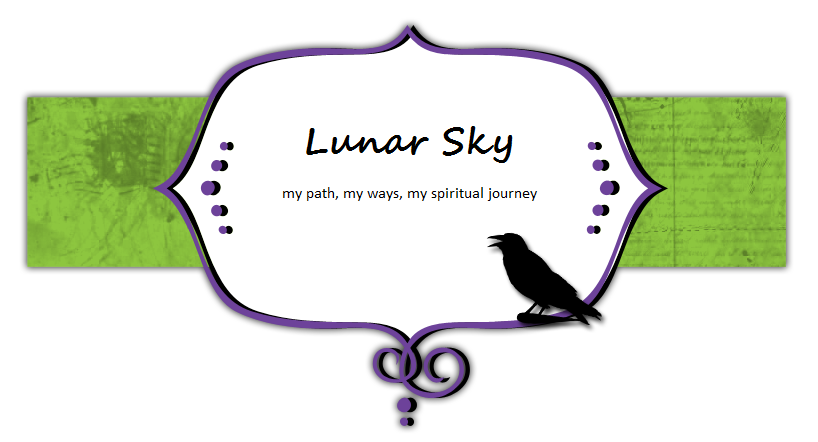Many people do a double-take when I tell them I'm Wiccan. They are often expecting a person who dresses in black clothes, has a feline familiar, lives in the big, cob-webby Victorian-style house at the end of the road, and who makes various bubbling potions out of eye of newt and toe of frog. Actually, the media has something to do with that kind of image. The media likes to portray Wiccans and Witches as either gothic, black-clad, vengeful Christian-haters or else as flakey, Val-speaking ("Like oohmmmm....or some junk"), nose-twitching, New Age Psychic Hotline operators. While the above may be based in some fact (from the shallow end of the pool of information out there), there is much more to Wicca than crystal-ball gazing and pentagrams.
Wicca is legally recognized by theUnited States of America
Wicca is also a part of the broader Neo-Pagan movement. (Pagan, in this sense coming from the late Latin meaning "country dweller"...one who did not follow the main belief system found in the cities because city dwellers did not have to rely on the seasonal cycles to grow their own food.) Neo-Pagans attempt to follow theOld Ways Egypt , and America Old Ways
The words "Wicca" and "Witch" has the same root ("wicca"-masculine form and "wicce"-feminine form) meaning either "wise one" or "to bend." People who fit into the "wise one" category in history were often the healers, scholars, and early astronomers. The more likely meaning, however, is "to bend," meaning that Witches bend particular forces in order to have the desired results. In what is known to Craft circles as "The Burning Times" the meaning became distorted. Since the healers were the only ones who knew the medicines and herbs, they were accused of witchcraft while faith-healing of the Roman Catholic Church became the accepted cure. From there, the image of a witch became the green-skinned, wart-nosed hag to promote fear.
Today more and more Wiccans are "coming out of the broom closet" as more people urge the protection of religious freedom. Wiccans are very active in this part of the US Constitution, not only to protect their own rights to practice their beliefs, but also to protect the rights of all: Christians, Muslims, Jews, Hindus, and all others. Wiccans do not believe their way is the "Only" way, but merely a path to reach the same goal.
The Wiccan way includes the understanding of nature and the divine. The divine being the One spirit, manifested in the Goddess and the God, and present in all things. Wiccans celebrate all cycles of life and learn through correspondence with the divine and nature, discussion with others of all beliefs systems, and through personal introspection. Wicca is not a quick fix! While Wiccans may do spells, these are based on healing, love, harmony, and protection. The main law of Wicca is "An' it harm none, do what ye will," meaning that one should live life, but mind to NEVER harm anything or anyone (including one's self). The rewards/consequences of one's actions are found in the Three-Fold Law in which "What energy is given out is returned threefold." In other words, if you do well, good energy returns, multiplied by three. If you do wrong, you will have the negative energy returned to you.
Wicca is legally recognized by the
Wicca is also a part of the broader Neo-Pagan movement. (Pagan, in this sense coming from the late Latin meaning "country dweller"...one who did not follow the main belief system found in the cities because city dwellers did not have to rely on the seasonal cycles to grow their own food.) Neo-Pagans attempt to follow the
The words "Wicca" and "Witch" has the same root ("wicca"-masculine form and "wicce"-feminine form) meaning either "wise one" or "to bend." People who fit into the "wise one" category in history were often the healers, scholars, and early astronomers. The more likely meaning, however, is "to bend," meaning that Witches bend particular forces in order to have the desired results. In what is known to Craft circles as "The Burning Times" the meaning became distorted. Since the healers were the only ones who knew the medicines and herbs, they were accused of witchcraft while faith-healing of the Roman Catholic Church became the accepted cure. From there, the image of a witch became the green-skinned, wart-nosed hag to promote fear.
Today more and more Wiccans are "coming out of the broom closet" as more people urge the protection of religious freedom. Wiccans are very active in this part of the US Constitution, not only to protect their own rights to practice their beliefs, but also to protect the rights of all: Christians, Muslims, Jews, Hindus, and all others. Wiccans do not believe their way is the "Only" way, but merely a path to reach the same goal.
The Wiccan way includes the understanding of nature and the divine. The divine being the One spirit, manifested in the Goddess and the God, and present in all things. Wiccans celebrate all cycles of life and learn through correspondence with the divine and nature, discussion with others of all beliefs systems, and through personal introspection. Wicca is not a quick fix! While Wiccans may do spells, these are based on healing, love, harmony, and protection. The main law of Wicca is "An' it harm none, do what ye will," meaning that one should live life, but mind to NEVER harm anything or anyone (including one's self). The rewards/consequences of one's actions are found in the Three-Fold Law in which "What energy is given out is returned threefold." In other words, if you do well, good energy returns, multiplied by three. If you do wrong, you will have the negative energy returned to you.
Source: www.thepagancampus.net

No comments:
Post a Comment